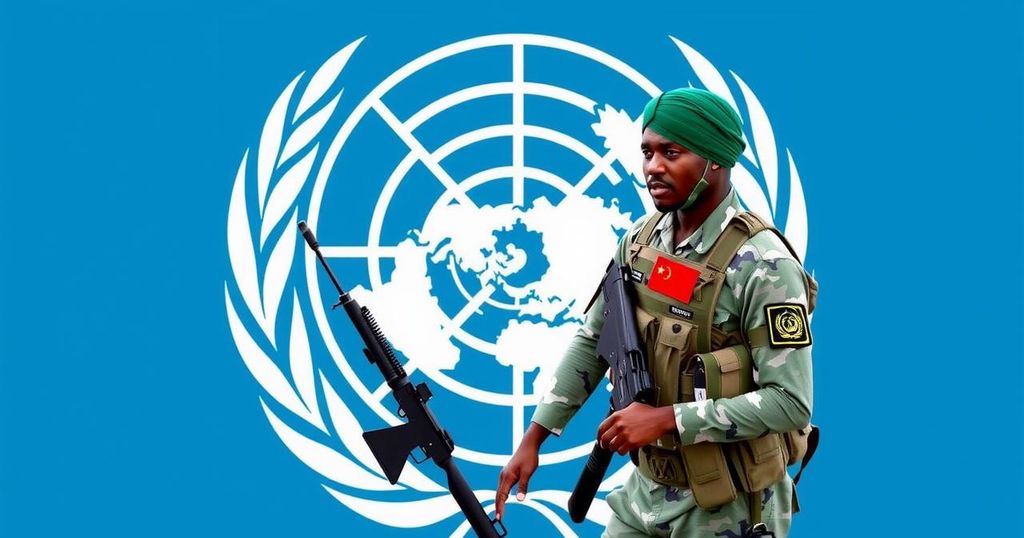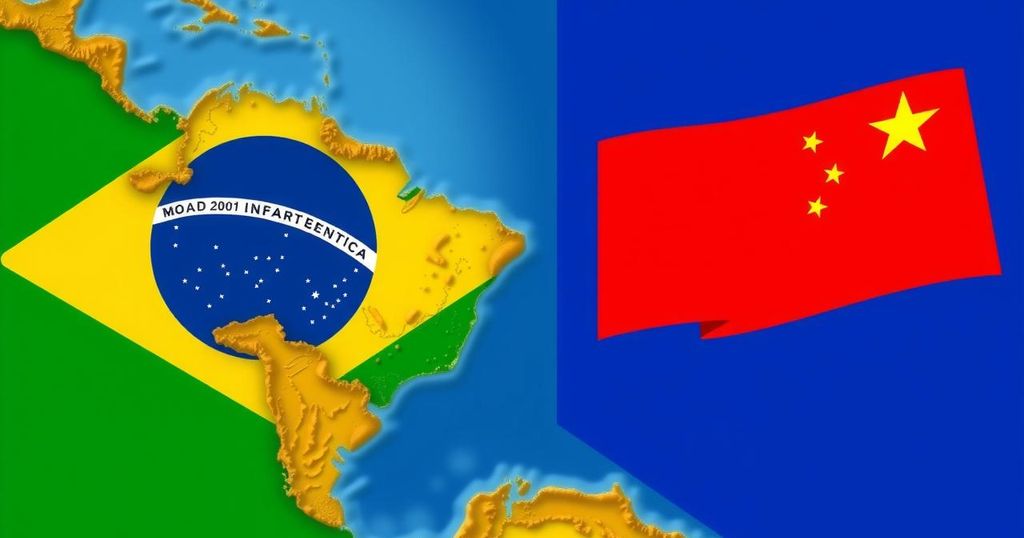Russia and China Oppose U.N. Peacekeeping Transition in Haiti
Russia and China opposed a U.S.-led initiative to convert the Kenya-led force in Haiti into a U.N. peacekeeping mission amid increasing gang violence. The proposal aims to address funding shortages, but concerns about safety and the effectiveness of peacekeeping efforts have led to significant resistance from these nations.
On November 19, 2024, Russia and China expressed their opposition to a U.S.-led initiative to convert a Kenyan-led multinational force in Haiti into a United Nations peacekeeping mission. The two nations convened a meeting of the U.N. Security Council amidst escalating gang violence, which has severely compromised security in the capital, Port-au-Prince. Gangs currently exercise control over an alarming 85% of the city’s territory, further complicating the situation as the U.S. proposed the peacekeeping mission in response to the funding crisis affecting the multinational force.
China’s Deputy U.N. Ambassador, Geng Shuang, argued that transitioning to a peacekeeping operation would hinder efforts to adequately resource the existing multinational force. The force only has approximately 430 police officers deployed from various nations, far below the promised total of 2,500. Geng stressed that peacekeepers should only be sent into environments where peace exists, asserting that Haiti’s conditions do not suffice for such a deployment.
In contrast, U.S. Deputy Ambassador, Dorothy Shea, contended that the transition to a U.N. mission would enable better financial and logistical support for the multinational force, ultimately assisting in restoring stability in Haiti. Meanwhile, key Haitian advocates, including Dr. Bill Pape, called for international support, acknowledging the significant challenges faced by local law enforcement in combating gang violence.
Despite the concerns raised by Russia and China, the need for immediate aid and a more substantial international presence in Haiti remains urgent. As Karina, U.N. political mission head, noted the trust fund dedicated to the multinational force is significantly underfunded, which complicates ongoing operations. While nations like Kenya back the transformation into a U.N. force, the conflicting perspectives illustrate the complexity of addressing Haiti’s security crisis effectively.
The crisis in Haiti has escalated due to rampant gang violence, leading to widespread insecurity and a humanitarian crisis. A Kenyan-led multinational force was deployed to assist the Haitian police, but funding challenges have made it difficult for this force to function effectively. The U.S. proposed transitioning this force to a U.N. peacekeeping mission to secure stable financing and operational support. However, this proposal has met with resistance from Russia and China, who cite the lack of peace in Haiti and the potential risks of deploying peacekeepers in such a volatile environment.
In conclusion, the situation in Haiti continues to be dire, with significant opposition from Russia and China regarding the transition of the Kenyan-led force to a U.N. peacekeeping mission. The ongoing gang violence poses severe threats to public safety, and the lack of adequate funding for the multinational force exacerbates the issue. While some nations support the transformation, others urge caution, emphasizing the need for immediate assistance and collaboration to address the growing crisis effectively.
Original Source: apnews.com








Post Comment